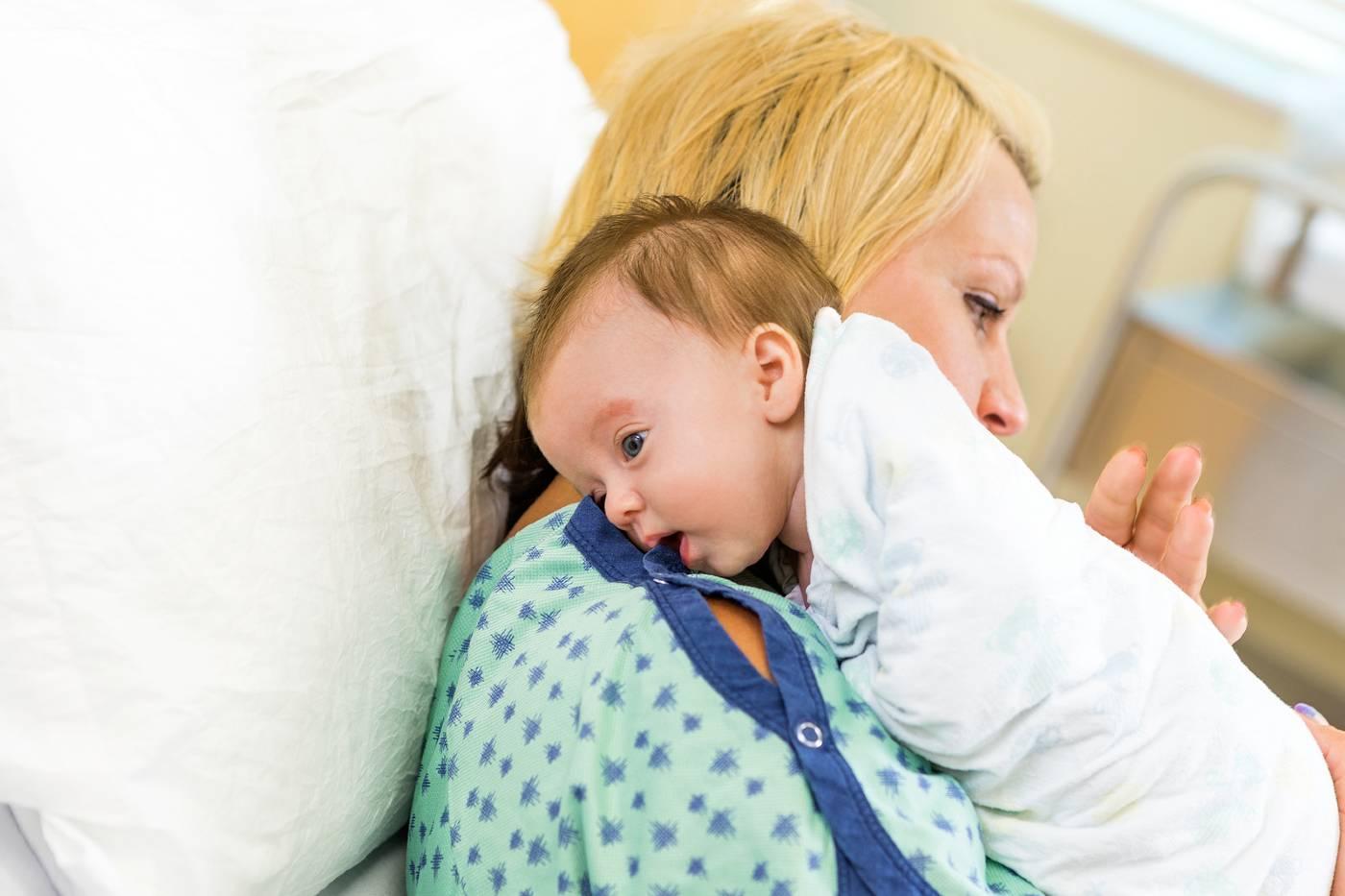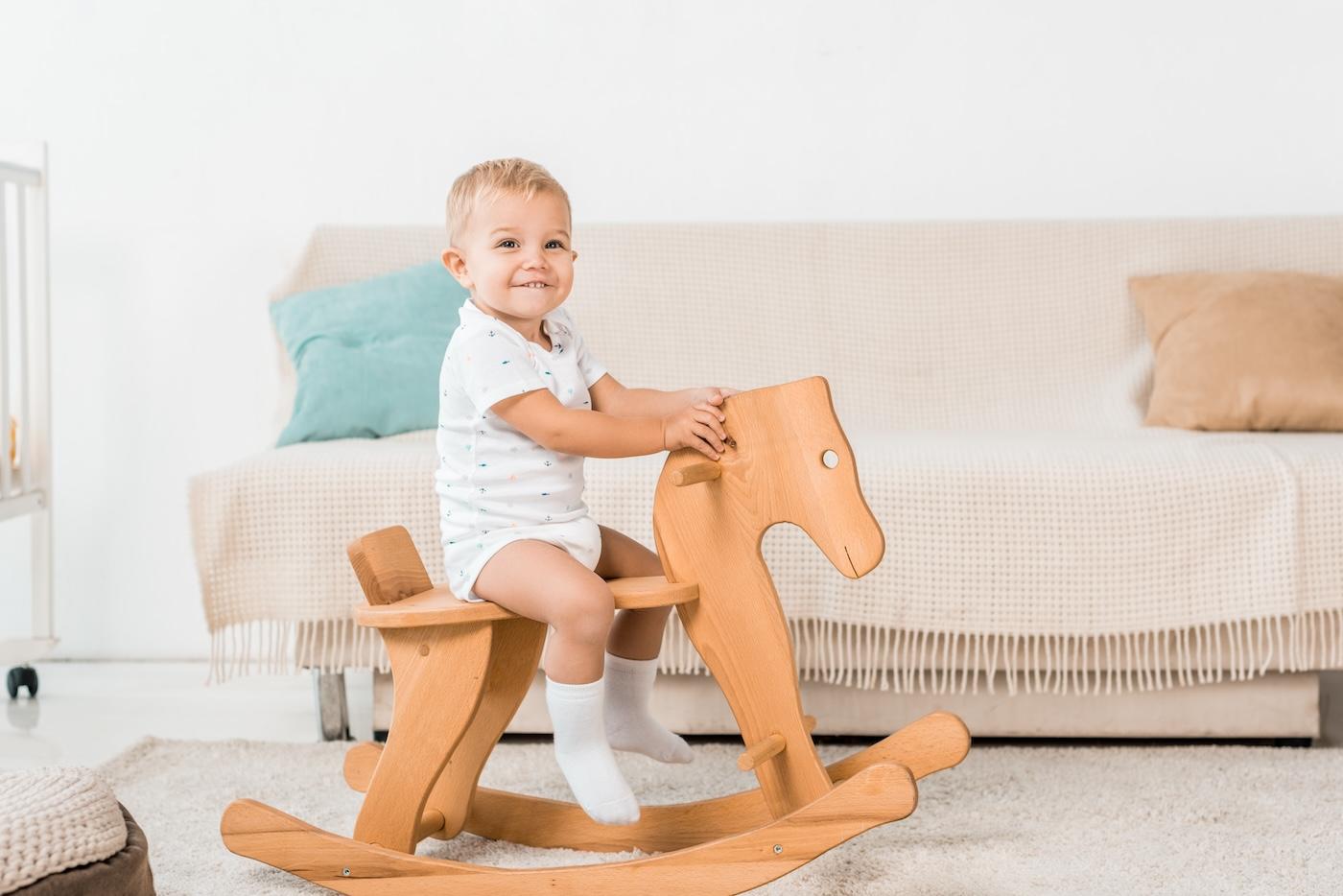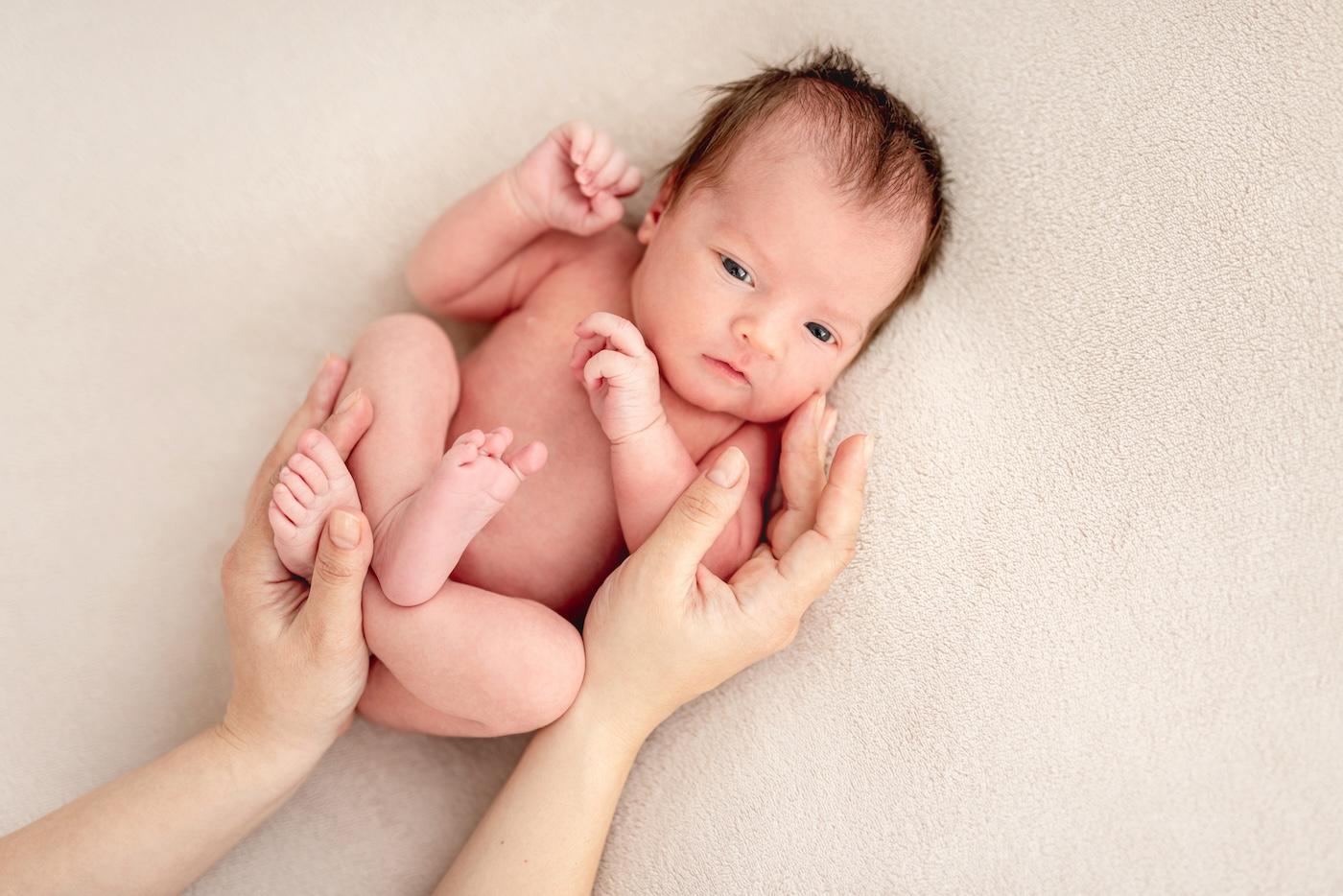BABY
Everything You Ever Wanted to Know About Burping a Baby
The best ways to get your bub’s belches out!

Written by
Holly Pevzner

Beyond side-eying your partner when they belch at an inopportune moment, there’s a good bet that you have not given much thought to burping…until now. Once you become a parent, however, questions like When do I burp my baby? and How do I burp my baby? litter your Google search history. For all the help you need, check out our guide to burping babies, complete with details on the best burping positions and the inside scoop on when you can stop coaxing burps out of your bub.
Why do babies need to be burped?
Before 6 months old, your baby is on an all-liquid diet, which primes them for swallowing a whole lot of gas-producing air. “The more quickly they gulp, the more likely they’ll swallow air,” says paediatrician Dr. Harvey Karp and author of The Happiest Baby on the Block. Burping can help loosen up some of that trapped air before it migrates through the digestive system and comes out of your baby’s bottom. It’s thought that not burping a baby may contribute to spitting up—or becoming cranky or gassy.
How to Burp a Baby
There are three go-to burping techniques that tend to work best. If one doesn’t seem to help your baby burp, try another. No matter which burping technique you favour, don’t forget to use a burp cloth under your little one’s chin—or on your shoulder—to help with cleanup if your baby lets out a “wet burp” of spit-up.
You can burp with a flattened palm, or you can cup your hand slightly for a gentler touch. Either way, Dr. Karp recommends patting their back as strongly as a tom-tom drum. “And do that for 1 to 2 minutes to see if you can loosen up the burp,” he says.
Baby Burping Positions
- Over-the-Shoulder Burping Position: Hold your baby against your chest, allowing their chin to rest on your shoulder. Make sure their tummy and back are nice and straight and support their head and neck. With your free hand, gently pat (or rub) their back. Experts note that gently rocking with your baby while you do this may also help.
- Sitting-on-Your-Lap Burping Position: Place your baby on your lap, facing out, while supporting their chin and chest. (Rest the heel of your hand on your baby’s chest and cradle their chin with your palm.) Lean your baby forward slightly, and with the other hand, gently rub or pat their back.
- Lying-Across-Your-Lap Burping Position: Rest your baby, face down, on your lap while supporting their chin with your hand. Use your other hand to gently rub or pat their back.
When should I burp my baby?
“It’s always a good idea to burp your baby when you’re finished with a feeding,” says Dr. Karp. But before going straight for the burp, you could hold your baby upright for a few minutes after they’re all done to allow the burp to come out on their own. And some babies need to be burped during a feed, too. To help you determine when your baby needs a burp, follow these suggestions:
- Look for feeding clues. If your baby seems uncomfortable while breastfeeding or bottle-feeding, take a short burping break mid-feed.
- Watch the bottle. If your bottle-fed baby gets fussy while feeding, offer a burp after every 2 to 3 ounces (60 to 90 milliliters) consumed.
- Pause between breasts. If your breastfeeding baby seems fussy while feeding, offer a burp before starting on the second breast. Try to burp for about one minute. If nothing comes out, allow your baby to continue nursing. Another option: Hold them upright before switching breasts to help your baby burp on their own.
What if my baby won’t burp?
Don’t worry about it! “If after a minute or two your baby hasn’t burped, that’s okay,” says Dr. Karp. “You can put your baby down.” They may have learned to eat without swallowing too much air. But if your gut tells you a burp is trapped in your baby, feel free to change your baby’s burping position, but know this:
“Burps are not going to get stuck in your baby’s stomach—or make your baby feel discomfort,” says Dr. Karp. “The worst thing that can happen? An hour or two later you may hear the burp come out—or there might be a little bit of spit up. But that’s not something you have to worry about.”
In fact, there’s no solid evidence that demands you burp your baby. While it’s fair to say that burping doesn’t harm your baby, a 2014 study determined that burping babies did not reduce the rates of colic, but burping did increase the rates of spit up, when compared to babies who were not burped.
With that, if your baby refuses to burp and seems uncomfortable, perhaps their gas is hoping to escape from the other end! (Signs of trapped gas include crying, arched back, pulling legs to the tummy, or clenched fists.) To help those gas bubbles along, lay your baby on their back and gently massage the belly. You can also move their teeny legs back and forth, like they’re riding a baby-sized bicycle.
When can you stop burping a baby?
While many babies rely on getting burped until about 7 to 9 months old, most babies can burp on their own around 3 months old.
***
REFERENCES
- Pregnancy Birth and Baby: Burping and wind in babies
- The Nemours Foundation, KidsHealth: Burping Your Baby
- UNICEF: How to burp a baby
- NHS: Burping your baby
- Children’s Hospital of Philadelphia: How to Help with Newborn Gas
- Allina Health: How to burp your baby
- A randomized controlled trial of burping for the prevention of colic and regurgitation in healthy infants, Child: Care, Health and Development, March 2015
- Pathways: How to Burp Baby and Why
- Kaiser Permanente: Burping a Baby
Disclaimer: The information on our site is NOT medical advice for any specific person or condition. It is only meant as general information. If you have any medical questions and concerns about your child or yourself, please contact your health provider. Breastmilk is the best source of nutrition for babies. It is important that, in preparation for and during breastfeeding, mothers eat a healthy, balanced diet. Combined breast- and bottle-feeding in the first weeks of life may reduce the supply of a mother's breastmilk and reversing the decision not to breastfeed is difficult. If you do decide to use infant formula, you should follow instructions carefully.
SHARE THIS ARTICLE
PARENT PICKS
Bestsellers
More on Baby
About Holly Pevzner
Holly Pevzner is Happiest Baby’s Staff Writer. She specializes in creating parenting, pregnancy, health, nutrition, and family travel content. Her work—including essays, columns, reported features, and more—has appeared in outlets such as EatingWell, Family Circle, Parents, Real Simple, and The Bump. Before becoming a full-time writer, Holly held senior staff positions at Prevention, Fitness, and Self magazines, covering medical health and psychology. She was also a contributing editor at Scholastic Parent & Child magazine and a regular kids-health columnist for Prevention and First For Women magazines. Holly lives in Los Angeles with her husband, two boys, and terrier mix.



















